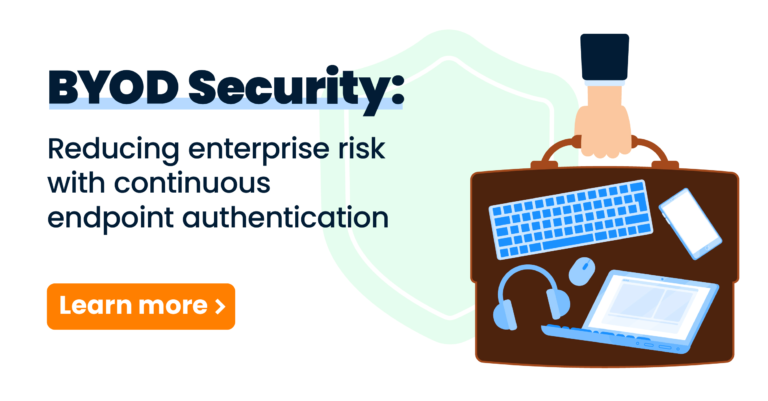Centralized Data in Insurance Agencies: Key Benefits and Challenges
Centralized data in insurance agencies is revolutionizing the way these organizations operate, enabling them to thrive in a competitive marketplace. By consolidating their data management practices, insurance agencies can leverage accurate customer information to enhance customer service and streamline operations. The benefits of centralized data are manifold, including improved data privacy, better analytics, and faster decision-making processes. In an industry where customer trust is paramount, maintaining data integrity and security becomes critical. As we explore the importance and challenges of centralized data in insurance agencies, it’s clear that embracing this approach is essential for future success.
In the realm of insurance, the concept of unified data systems is gaining traction as agencies seek to optimize their operations. This integrated approach not only simplifies data management but also enhances customer interactions and service delivery. By utilizing comprehensive repositories of information, insurers can develop tailored strategies that resonate with client needs. Furthermore, effective customer relationship management (CRM) tools are essential for ensuring that agencies can harness these data advantages while maintaining stringent data privacy standards. As we delve deeper into the significance of organized data structures, it becomes evident that modern insurance practices must prioritize this centralization for optimal growth.
Understanding Centralized Data in Insurance Agencies
Centralized data in insurance agencies refers to the method of storing all relevant information in a single location, allowing for easy access and management. This approach not only simplifies data retrieval but also ensures that all employees are working from the same set of information. For insurance agencies, this means having immediate access to customer history, policy details, and claims data, which is crucial for providing timely and accurate customer service. Centralized data systems allow agencies to break down silos that often impede communication and efficiency.
Moreover, the advantages of adopting centralized data management extend beyond mere convenience. With a unified database, insurance agencies can implement standardized processes, leading to improved accuracy and consistency in their operations. This is particularly valuable in an industry where data privacy and compliance are paramount. By centralizing data, agencies can enhance their security measures, ensuring customer information is protected while also complying with regulations such as GDPR and HIPAA.
The Benefits of Centralized Data for Insurance Customer Service
Centralized data significantly enhances customer service in the insurance sector by providing agents with immediate access to comprehensive customer profiles. When an agent can view all relevant information—such as past interactions, policy details, and claims history—at a glance, they can respond to inquiries more efficiently. This not only reduces wait times for customers but also fosters a more personalized experience, as agents can tailor their responses based on a complete understanding of the customer’s needs.
Additionally, with centralized data, insurance agencies can implement advanced CRM systems that track customer interactions and feedback. This capability allows for continuous improvement in service delivery. For example, agencies can analyze data to identify common customer concerns or requests, enabling them to proactively address issues and refine their service offerings. By leveraging centralized data, insurance agencies position themselves as customer-centric organizations, ultimately driving higher satisfaction and loyalty.
Challenges in Centralizing Data Within the Insurance Sector
Centralizing data is not without its challenges, particularly in the insurance industry where diverse data sources must be integrated. Many insurance agencies struggle with data integration and standardization, as they often operate multiple legacy systems that contain vital customer information. The complexity of merging these systems into a cohesive centralized database can be daunting, requiring significant time and effort. Agencies must invest in technology and resources to ensure that all data sources can be effectively consolidated.
Moreover, data privacy and security are critical concerns when centralizing information. Insurance agencies handle sensitive customer data that must be protected against breaches and unauthorized access. Implementing robust security measures, such as encryption and access controls, is essential to safeguard this information. Compliance with industry regulations adds another layer of complexity, making it vital for agencies to stay updated on best practices for data protection while centralizing their databases.
The Impact of Poor Data Centralization on Insurance Agencies
Poor data centralization can have far-reaching consequences for insurance agencies, leading to inefficiencies and inaccuracies in data management. When data is scattered across various systems, employees may struggle to access the necessary information quickly, resulting in delays in service delivery. This inefficiency not only frustrates customers but can also hinder the agency’s ability to respond to market changes and customer demands promptly.
Inaccurate data resulting from poor centralization can also undermine analytics and reporting efforts. Without reliable data, insurance agencies may generate misleading reports, leading to poor decision-making. The inability to track customer behavior accurately can result in missed opportunities for engagement and retention. Ultimately, these challenges can impact the agency’s bottom line and its reputation in the industry.
Best Practices for Effective Centralized Data Management
To achieve effective centralized data management, insurance agencies should adopt a data-driven approach, emphasizing the importance of accuracy and accessibility. Training staff on the significance of reliable data can foster a culture of accountability and diligence. Implementing data governance policies ensures that data is consistently entered and maintained, promoting a high level of data integrity.
Investing in a robust technical infrastructure is another best practice for centralizing data. Agencies should consider utilizing advanced CRM platforms tailored for the insurance industry, as these solutions often come equipped with tools for data integration, analytics, and reporting. Regular assessments of data quality can help agencies identify discrepancies and improve their data management processes, ensuring that the centralized data remains a valuable resource for informed decision-making.
Leveraging CRM for Centralized Data Management in Insurance
CRM systems play a pivotal role in managing centralized data for insurance agencies. These platforms enable agencies to collect, store, and analyze customer data from a single source, streamlining operations and enhancing service delivery. With a CRM, agencies can track customer interactions, manage policy details, and automate various processes, allowing for a more efficient workflow. This centralized approach ensures that all team members have access to up-to-date information, which is crucial for personalized customer service.
Additionally, many CRM systems include advanced analytics capabilities that help insurance agencies gain insights into customer behavior and preferences. By leveraging this data, agencies can tailor their marketing efforts, develop targeted products, and ultimately improve customer satisfaction. The integration of CRM solutions into centralized data management not only enhances operational efficiency but also positions insurance agencies to be more responsive to their clients’ evolving needs.
Data Privacy Considerations in Centralized Insurance Data Management
As insurance agencies move towards centralized data management, data privacy must remain a top priority. Agencies are responsible for safeguarding sensitive customer information, adhering to regulatory requirements, and ensuring that data is accessed only by authorized personnel. Implementing strong data encryption, secure authentication protocols, and regular audits can help mitigate risks associated with data breaches and unauthorized access.
Furthermore, agencies should establish clear data privacy policies that outline how customer information will be collected, used, and protected. Transparency with customers about how their data is handled can build trust and strengthen relationships. By prioritizing data privacy in their centralized data management efforts, insurance agencies can protect their clients while enhancing their operational capabilities.
Streamlining Operations with Centralized Data in Insurance Agencies
Centralized data management significantly streamlines operations within insurance agencies by reducing the time spent searching for information. When data is consolidated into a single repository, employees can access customer details, claims history, and policy information quickly and efficiently. This immediate access allows for faster decision-making and enables agents to focus on delivering quality service rather than navigating multiple systems.
In addition to improving response times, centralized data can help eliminate redundancies and manual processes that often slow down operations. Automation tools integrated within centralized systems can handle routine tasks, such as data entry and reporting, freeing up staff to concentrate on more strategic initiatives. This increase in operational efficiency not only reduces costs but also enhances the overall customer experience as agencies can respond to inquiries and resolve issues more effectively.
Future Trends in Centralized Data Management for Insurance
The future of centralized data management in the insurance industry is poised to incorporate emerging technologies such as artificial intelligence (AI) and machine learning. These innovations can enhance data analytics capabilities, allowing agencies to gain deeper insights into customer behavior and market trends. As predictive analytics becomes more prevalent, insurance agencies will be better equipped to anticipate customer needs and tailor their offerings accordingly.
Moreover, the integration of cloud-based solutions will continue to transform how insurance agencies manage centralized data. Cloud technology provides scalability and flexibility, enabling agencies to adapt to changing data requirements without significant upfront investment. As these trends evolve, insurance agencies that embrace centralized data management will be better positioned to navigate the complexities of the industry, enhance customer experiences, and drive growth.
Frequently Asked Questions
What are the benefits of centralized data for insurance agencies?
Centralized data in insurance agencies offers numerous benefits, including improved customer service through quick access to accurate information, data-driven strategies that help in making informed decisions, enhanced analytics and reporting capabilities, and increased operational efficiency by streamlining processes. This comprehensive view of customer data allows agencies to understand client needs better and provide personalized services.
How does centralized data impact insurance customer service?
Centralized data significantly enhances insurance customer service by enabling agencies to respond quickly and accurately to inquiries. With all customer information stored in one location, agents can provide timely answers to policy questions, understand customer preferences, and tailor services accordingly, ultimately leading to improved customer satisfaction and loyalty.
What challenges do insurance agencies face when centralizing data?
Insurance agencies encounter several challenges when centralizing data, including data integration and standardization from various sources, ensuring data privacy and security compliance, managing complex data structures effectively, and overcoming technical infrastructure limitations. Addressing these challenges is crucial for successful centralized data management.
Why is data privacy important in centralized data management for insurance agencies?
Data privacy is critical in centralized data management for insurance agencies because they handle sensitive customer information. Agencies must implement robust security measures, such as encryption and authentication protocols, to protect this data and comply with regulations like HIPAA. Ensuring data privacy builds trust with customers and protects the agency from potential legal issues.
What best practices should insurance agencies follow for effective data management?
To ensure effective data management, insurance agencies should adopt a data-driven approach, invest in a robust data infrastructure, foster collaboration between IT and sales teams, and conduct regular data quality assessments. These practices help maintain accurate, organized, and up-to-date data, facilitating better decision-making and operational efficiency.
How can poor data centralization affect the success of an insurance agency?
Poor data centralization can lead to inefficient data management, data inconsistency, inaccurate analytics, and delays in decision-making for insurance agencies. These issues can negatively impact customer relationships, hinder operational efficiency, and cause missed opportunities, ultimately affecting the agency’s competitiveness and profitability.
What role does CRM play in centralized data management for insurance agencies?
A CRM system plays a pivotal role in centralized data management for insurance agencies by providing a unified platform to store and manage customer information. It facilitates data integration, enhances customer relationship management, and allows for accurate reporting and analytics, thereby improving decision-making and operational efficiency.
How can insurance agencies ensure the accuracy of their centralized data?
Insurance agencies can ensure the accuracy of their centralized data by conducting regular data quality assessments, implementing data validation processes, and providing training to staff on the importance of accurate data entry. Additionally, using a reliable CRM system can help maintain data integrity and facilitate real-time updates.
| Key Points | Details |
|---|---|
| What is Centralized Data? | Information stored in a single repository for easy access and consistent decision-making. |
| Importance of Centralized Data | Essential for quick access to customer information, enhancing customer service and developing strategies. |
| Benefits of Centralized Data | Improved customer service, data-driven strategies, better analytics & reporting, enhanced efficiency. |
| Challenges in Centralizing Data | Data integration, privacy and security, managing complex structures, technical infrastructure limitations. |
| Consequences of Poor Data Centralization | Inefficient management, data inconsistency, inaccurate analytics, delays in decision making. |
| Best Practices for Data Management | Adopt data-driven approach, invest in robust infrastructure, collaborate IT & sales teams, regular data assessments. |
Summary
Centralized Data in Insurance Agencies is crucial for enhancing customer service and operational efficiency. By consolidating data into a single repository, insurance agencies can make informed decisions, respond quickly to customer needs, and develop tailored strategies that give them a competitive edge. While there are challenges such as data integration and security, adopting best practices in data management can greatly improve accuracy and effectiveness. Embracing centralized data is not just beneficial—it’s essential for insurance agencies aiming for success in today’s market.







